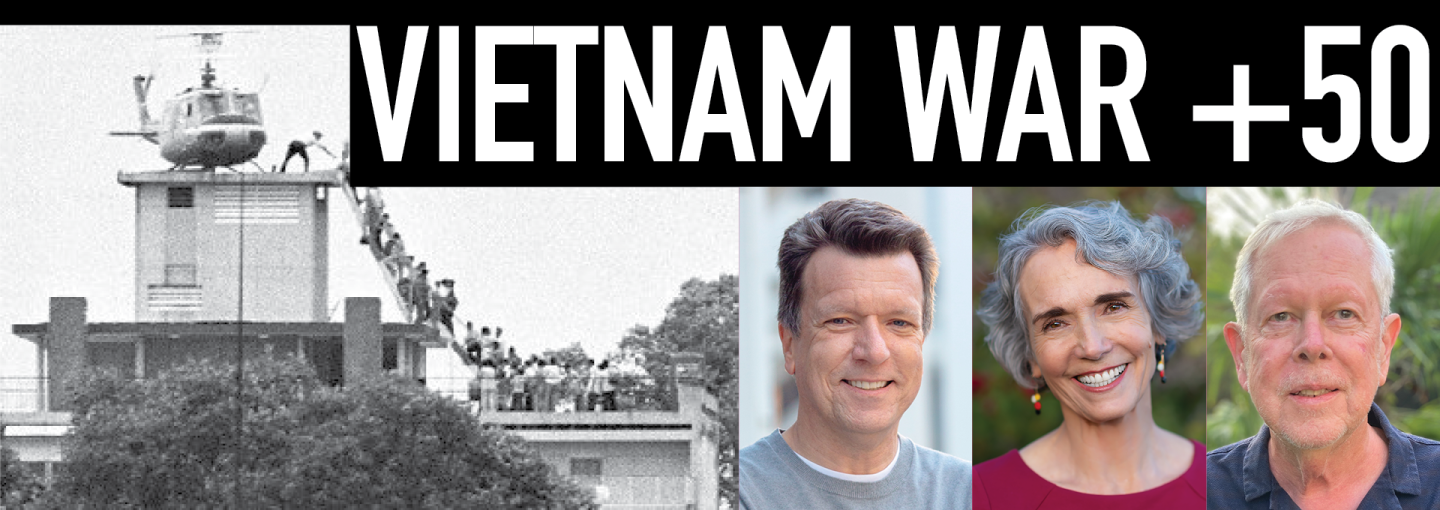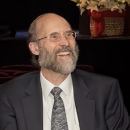
Humanities West Presents Lessons Unlearned: The 50th Anniversary of the End of the Vietnam War
There clearly are lessons that we have learned from the Vietnam War that we have applied well to other situations, but there are also lessons that we think we have learned that are far less clear, and could lead to similar outcomes if we are not careful.
The Vietnam War certainly cast a pall over America, but much more so over all of Southeast Asia. Back then the enemy was seen as Communism. Now the enemy has transformed into various political movements along the far end of the authoritarian spectrum―whose understandable but deceptive attractiveness during moments of despair has even begun finding many adherents among us.
To head off that unfortunate development, join us in asking: Which foreign policies could we adopt that would make the freest end of the spectrum of democratic civilizations more robust, more stable and more desirable? And where does the development and use of military power fit into those foreign policies to achieve our civilizational goals?
Humanities West presents a variety of expert opinions on these important issues while reviewing what went wrong, and what went right, during the Vietnam War that ended so abruptly on April 30, 1975.
Join us for two nights, on April 30 and May 2, to hear six experts review what we have learned, and what we have not, about the Vietnam War.
Speakers on April 30
Three Schools of Thought
Mark Lawrence will examine how American politicians and policymakers have drawn lessons from America’s lost war in Vietnam. The war left Americans with an array of questions about how the nation had become involved in such a difficult fight and who was to blame for the failure. This talk will explore the three major traditions that emerged as Americans began offering answers. One school of thought viewed the war as essentially a tragedy; Washington committed the nation to war on sound motives but wound up stuck in a quagmire that no one had foreseen. A second school viewed the war as a “noble cause”—a worthy endeavor that could have been won if only the right choices had been made about how to fight it. A third school saw the war as a crime; the war was undertaken on the basis of ignoble motives and was unwinnable at any reasonable cost. Politicians and policymakers have drawn on each of these traditions in making decisions about American foreign affairs since the 1970s.
A Hit and a Miss: The Problem of Umpire
Elizabeth Cobbs will revisit the reactions, during the Cold War, to the United States having bent its every effort to sustain an independent West Berlin, an independent South Korea, and an independent South Vietnam. Scholars, allies and the public have long applauded the first two goals, while denouncing the third. What accounts for this difference, and how can we better understand the choices the United States made during the 20th century compared with its options today?
The Vietnam War “Fog” Extends to Its “Lessons” and “Legacy”
Yale Ferguson will cover the analysts who still debate why the Vietnam War began, evolved and ended as it did, and asks: Is it possible to draw lessons from the Vietnam experience? What effects did lessons learned have on later wars? Military strategists are not always fighting the last war, because they are aware that geopolitical contexts, alliances, weapons technology and other factors change. How well strategists have read the changed situation is another matter. For perspective, the United States has arguably “lost” or failed to achieve key objectives in every one of its wars since WWII except the Cold War and the Gulf War (1990–91). Nor has multilateral military action in support of peacekeeping, humanitarian goals and nation-building been all that successful. So how relevant does Vietnam remain in the current context of nuclear deterrence and conflicts in Ukraine, the Middle East and the South China Sea?
A Humanities Member-led Forum program. Forums at the Club are organized and run by volunteer programmers who are members of The Commonwealth Club, and they cover a diverse range of topics. Learn more about our Forums.
In association with Humanities West.
Vietnam photo by Hubert van Es/Fair Use; speaker photos courtesy the speakers.
The Commonwealth Club of California
110 The Embarcadero
Taube Family Auditorium
San Francisco, CA 94105
United States

Mark Atwood Lawrence
Professor of History and Walter Prescott Webb Chair in History and Ideas, The University of Texas at Austin; Former Director, LBJ Presidential Library and Museum; Author, Assuming the Burden: Europe and the American Commitment to War in Vietnam, The Vietnam War: A Concise International History, and The End of Ambition: The United States and the Third World in the Vietnam Era

Elizabeth Cobbs
Dwight E. Stanford Emerita Professor, San Diego State University; Former Senior Fellow, Hoover Institution, Stanford University; Former Member, Historical Advisory Committee of the U.S. State Department and Jury for the Pulitzer Prize in History; Award-winning Documentary Filmmaker; Author of nine books, including American Umpire

Yale H. Ferguson
Emeritus Distinguished Professor of Global and International Affairs, Rutgers University; Honorary Professor, University of Salzburg; Previously Visiting Fellow: University of Cambridge, Norwegian Nobel Institute, University of Padua; Author or Co-Author of 12 books, including with Richard Mansbach, Globalization: The Return of Borders to a Borderless World? Remapping Global Politics, The Web of World Politics; and (forthcoming) War and Political Evolution from the Ancient Mediterranean to the Contemporary World

George Hammond
Author, Conversations With Socrates—Moderator



